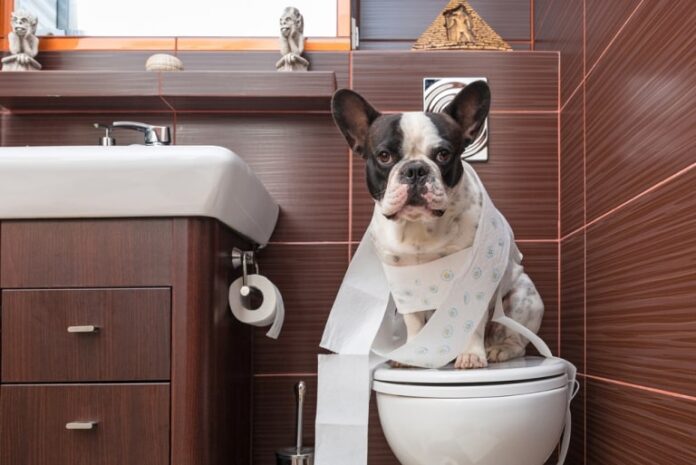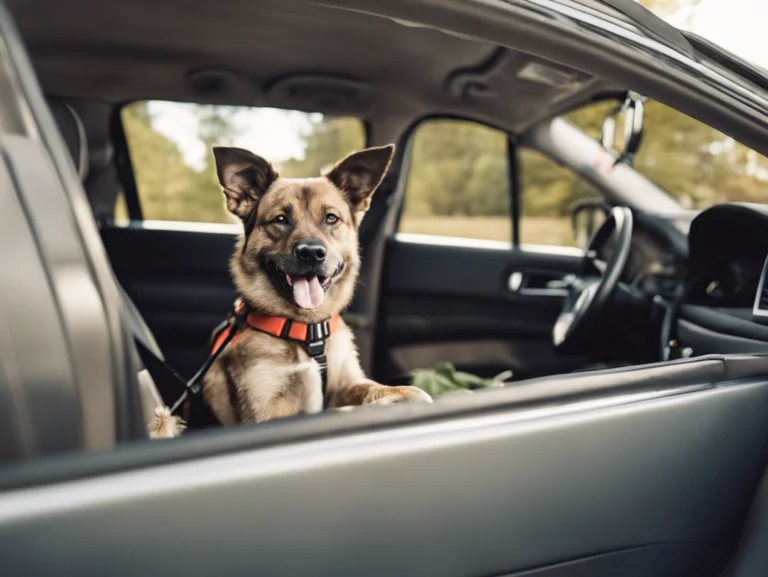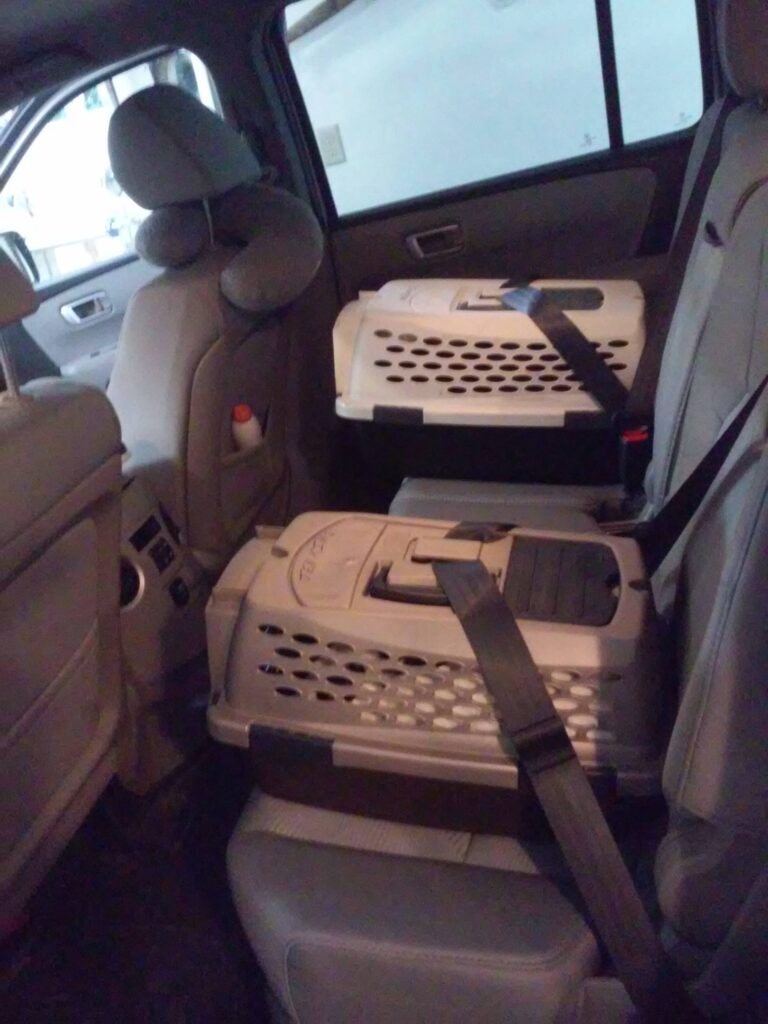What Smell Do Dogs Despise for Outdoor Relief? Secrets Unveiled
Dogs typically avoid peeing on areas with smells of citrus, vinegar, ammonia, or bitter apple outside. These scents act as natural repellents to deter dogs from urinating in those spots.
When a dog catches a whiff of these scents, they are likely to seek out a different location to relieve themselves. Using these scents strategically in your yard can help train your dog to avoid certain areas and maintain a cleaner outdoor space.
By understanding what smells dogs hate to pee on, you can effectively discourage unwanted urination in specific areas, promoting better hygiene and reducing the need for constant clean-up.
Introduction To Canine Scent Preferences
Discovering canine scent preferences can shed light on what smells dogs dislike urinating on outdoors. Understanding these preferences can aid in effective potty training techniques and creating a pleasant outdoor environment for your furry friend.
The Power Of A Dog’s Nose
Dogs have an incredible sense of smell, which is far superior to that of humans. In fact, their sense of smell is estimated to be anywhere from 10,000 to 100,000 times more powerful than ours! This remarkable ability allows them to detect and differentiate a wide range of scents, making their noses their primary tool for exploring and understanding the world around them.
Importance Of Scent In Canine Behavior
The sense of smell plays a crucial role in canine behavior. Dogs use their noses to communicate, navigate, and gather information about their environment. They rely on scents to identify individuals, mark territories, locate food, and even detect potential dangers. Understanding a dog’s scent preferences can provide valuable insights into their behavior, including their choices when it comes to where they choose to eliminate.
When it comes to the question of what smells dogs hate to pee on outside, it’s important to consider that each dog is unique and may have individual preferences. However, there are certain scents that are generally disliked by dogs and may deter them from urinating in specific areas.
Let’s explore some smells that dogs commonly dislike:
- Ammonia: The strong smell of ammonia, often found in cleaning products, can be unpleasant for dogs. Using ammonia-based cleaners to clean up areas where your dog has urinated may discourage them from returning to that spot.
- Vinegar: Dogs have a sensitive sense of smell and vinegar is known to be quite pungent to them. Spraying vinegar in areas where you don’t want your dog to urinate can be an effective deterrent.
- Citrus: The strong scent of citrus fruits, such as oranges or lemons, is disliked by many dogs. Applying citrus-scented sprays or placing citrus peels in areas where you want to discourage urination may help prevent your dog from using those spots.
- Pepper: Dogs have a natural aversion to the spicy scent of pepper. Sprinkling a small amount of pepper around the perimeter of your yard or in specific areas can discourage them from urinating there.
It’s important to note that while these scents may deter some dogs from urinating in certain areas, it’s not a foolproof solution. Some dogs may be more tolerant of these smells or may simply find alternative areas to eliminate. Consistent training, positive reinforcement, and providing appropriate potty areas are key to successfully managing your dog’s bathroom habits.

Credit: www.pawmaw.com
Common Scents Dogs Dislike
Dogs have a keen sense of smell, and certain scents can deter them from peeing in specific areas. Understanding the common scents that dogs dislike can be beneficial for pet owners who want to discourage their furry friends from urinating in unwanted places.
Citrus Fruits: A Sour Experience
Citrus fruits, such as lemons and oranges, emit a strong aroma that dogs find unpleasant. The sour scent of citrus is known to repel dogs and can be used to discourage them from urinating in specific outdoor areas. Placing citrus peels or spraying citrus-infused solutions in desired locations can help deter dogs from peeing in those areas.
Vinegar: The Pungent Repellent
Vinegar is another scent that dogs find unappealing. Its pungent odor can be an effective tool for deterring dogs from urinating in unwanted spots. Mixing vinegar with water and using it as a spray in areas where you don’t want dogs to pee can help discourage them from choosing those locations.
Chemical Smells That Repel Dogs
Chemical smells that dogs hate can be effective in repelling them from peeing outside. Certain scents like citrus, vinegar, and ammonia are known to be unappealing to dogs, helping to deter them from marking their territory in undesirable areas.
Dogs have a keen sense of smell, and they use it to navigate their environment. Unfortunately, this means that they may be attracted to certain smells that we don’t want them to be. That’s why it’s important to know which chemical smells repel dogs, so you can keep your yard clean and odor-free. Here are two of the most effective chemical smells that repel dogs:Ammonia: A Potent Irritant
Ammonia is a colorless gas with a sharp, pungent odor. It’s commonly used in cleaning products, and it’s also found in urine. Dogs are naturally attracted to the smell of urine, which is why they may be drawn to urinate in the same spot over and over again. However, ammonia is a potent irritant that can cause respiratory problems, eye irritation, and other health issues in dogs. That’s why it’s a great chemical smell to use as a dog repellent. To use ammonia as a dog repellent, you can dilute it with water and spray it on the areas where your dog is urinating. You can also soak cotton balls in ammonia and place them in the areas where your dog is urinating. Be sure to keep the ammonia away from your dog’s food and water, as it can be harmful if ingested.Alcohol-based Products: A Bitter Aversion
Alcohol-based products, such as perfumes and colognes, have a bitter smell that dogs find unpleasant. You can use these products to create a barrier around your yard to keep your dog from urinating in certain areas. Simply spray the product around the areas where your dog is urinating to create a scent barrier. Another option is to mix rubbing alcohol with water and spray it on the areas where your dog is urinating. The bitter taste will discourage your dog from returning to that spot. Just be sure to keep the alcohol away from your dog’s food and water, as it can be harmful if ingested. In conclusion, using chemical smells to repel dogs can be an effective way to keep your yard clean and odor-free. Ammonia and alcohol-based products are two of the most effective chemical smells that repel dogs. Use them wisely and keep your furry friend safe and healthy.Essential Oils Not Welcomed By Canines
Canines have a strong sense of smell, making certain scents unappealing to them. Essential oils, often used to mask pet urine odors, can actually repel dogs and cause them to avoid peeing in that area. It’s important to be aware of what smells dogs hate to pee on outside to prevent unwanted accidents in your yard.
Eucalyptus: Nature’s Deterrent
One essential oil that dogs absolutely detest is eucalyptus. Known for its strong scent and medicinal properties, eucalyptus oil is often used to repel insects and relieve respiratory issues in humans. However, when it comes to our furry friends, it has quite the opposite effect.
The strong aroma of eucalyptus can be overwhelming and irritating to dogs, leading them to avoid areas where it is present. This makes it an effective natural deterrent for keeping dogs away from specific spots in your yard where you don’t want them to pee. By strategically using eucalyptus oil in these areas, you can train your dog to avoid them.
It’s important to note that while eucalyptus oil is generally safe for humans when used properly, it can be toxic to dogs if ingested in large quantities. Therefore, it’s crucial to keep the oil out of your dog’s reach and consult with a veterinarian before using it as a deterrent.
Tea Tree Oil: A Strong Displeasure
Another essential oil that dogs dislike is tea tree oil. This oil, derived from the leaves of the Melaleuca alternifolia tree, is commonly used for its antiseptic properties and is found in many skincare and cleaning products.
While tea tree oil can be beneficial for humans, it is highly toxic to dogs when ingested or applied directly to their skin. The strong scent of tea tree oil is known to repel dogs, making it an effective deterrent for outdoor areas where you don’t want them to pee.
However, it’s important to exercise caution when using tea tree oil as a dog repellent. Ensure that the oil is properly diluted and avoid applying it directly to your dog’s skin. If you suspect your dog has ingested or come into contact with tea tree oil, seek immediate veterinary assistance.
Spicy Aromas And Their Effects On Dogs
Spicy aromas can deter dogs from peeing in certain areas outside. Common scents that dogs dislike include citrus, vinegar, and chili pepper. By using these scents, pet owners can discourage their dogs from urinating in unwanted spots.
Capsaicin: A Spicy Deterrent
Dogs dislike spicy smells like capsaicin, found in chili peppers, which repel them from peeing.Mustard Oil: Unpleasant For Canine Noses
Mustard oil emits a strong odor that dogs find unpleasant, deterring them from marking territory there.
Credit: angryorange.com
Natural Scents That Dogs Tend To Avoid
Dogs have a natural aversion to certain scents, making them less likely to pee on certain areas outside. These scents include citrus, vinegar, ammonia, and chili pepper, which can be used to deter dogs from urinating in unwanted places.
Natural Scents That Dogs Tend to Avoid: Dogs have a strong sense of smell, which is why they use their noses to navigate and explore the world around them. However, when it comes to peeing, dogs tend to avoid certain scents. If you’re looking to keep dogs from peeing in specific areas outside, knowing which scents to avoid can be helpful. Pine: The Freshness They Reject Pine is a scent that many people enjoy, but it’s not one that dogs tend to like. This fresh, woodsy scent is often used in cleaning products and air fresheners, but it can also be used to repel dogs from certain areas. If you’re looking to keep dogs from peeing in a particular spot outside, you can try using pine-scented products to mask any other smells that might attract them. Herbal Repellents: Dogs’ Natural Dislikes Another scent that dogs tend to avoid is herbal repellents. These are often made from natural ingredients like citronella, peppermint, or eucalyptus, which are known to repel dogs. If you’re looking for a natural way to keep dogs from peeing in certain areas outside, you can try using these types of repellents. They can be found in sprays, powders, or even as plants that you can grow in your yard. In conclusion, knowing which scents dogs tend to avoid can be helpful when trying to keep them from peeing in certain areas outside. Pine and herbal repellents are two options to consider, but there may be other scents that work as well. Keep in mind that not all dogs will be deterred by these scents, so it may take some trial and error to find what works best for your furry friend.Using Scents To Train Dogs For Outdoor Relief
Using Scents to Train Dogs for Outdoor Relief
Positive Reinforcement
Dogs respond well to positive reinforcement, so using pleasant scents in outdoor relief areas can encourage them to use designated spots for their bathroom needs. Introducing scents that dogs find appealing, such as lavender, citrus, or mint, can attract them to these areas and reinforce the desired behavior.
Scent Aversion
Conversely, unpleasant scents can be employed to deter dogs from eliminating in certain areas. Scents such as ammonia, vinegar, or bitter apple can create an aversion, making these spots less appealing for dogs to pee on. Consistently using these scents in areas where elimination is not desired can help discourage dogs from using those spots.

Credit: www.impraise.com
Precautions When Using Scent Repellents
When using scent repellents to discourage dogs from peeing in certain outdoor areas, it’s important to take precautions to ensure the safety and well-being of both the dogs and the environment. Precautions When Using Scent Repellents.
Considering Dog Safety And Health
When applying scent repellents, it’s crucial to prioritize the safety and health of dogs. Choose repellents that are safe for dogs and do not pose any health risks such as skin irritation or respiratory problems. Additionally, ensure that the repellents do not contain any toxic substances that could harm dogs if ingested accidentally. Always read the labels carefully and follow the usage instructions to minimize any potential risks to the dogs’ safety and health.
Environmental Impact Of Repellents
The use of scent repellents can have an impact on the environment, especially if they contain chemicals that may be harmful to plants and wildlife. Consider using natural or biodegradable repellents that are less likely to cause harm to the surrounding ecosystem. Avoid using repellents that leach into the soil and potentially contaminate groundwater. Be mindful of the potential environmental consequences and choose repellents that minimize negative impacts on the environment.
Conclusion: Balancing Aversion With Care
Dogs have a strong aversion to strong-smelling substances like ammonia, citrus, and vinegar, making them effective deterrents for outdoor urination. Balancing this aversion with care is crucial to ensuring a pet-friendly and pleasant outdoor environment.
The Ethical Use Of Repellents
Dog owners have a responsibility to ensure their pets are well-behaved, but it’s important to do so ethically. While repellents can help prevent dogs from peeing on certain surfaces, it’s crucial to use them in a way that doesn’t harm the animal. Chemical repellents, in particular, should be avoided as they can cause health problems and discomfort for dogs. Instead, consider using natural repellents like citrus or vinegar, or placing barriers like chicken wire around sensitive areas.Maintaining A Happy And Healthy Dog
While it’s important to prevent dogs from peeing on certain surfaces, it’s equally important to ensure they’re happy and healthy. Punishing a dog for peeing on a surface they dislike can cause anxiety and stress, leading to other behavioral problems. Instead, focus on positive reinforcement and training to encourage good behavior. Additionally, make sure your dog has plenty of opportunities to pee in appropriate areas, and provide them with enough exercise and mental stimulation to prevent boredom and restlessness. In conclusion, preventing dogs from peeing on certain surfaces can be a challenging but necessary task. While repellents can be effective, it’s important to use them ethically and with the wellbeing of the dog in mind. Additionally, focusing on positive reinforcement and maintaining a happy and healthy dog can go a long way in preventing unwanted behavior.Frequently Asked Questions
What Smell Puts Dogs Off Peeing?
Citrus or vinegar scents deter dogs from peeing in specific areas due to their strong odor.
What Is The Best Homemade Dog Urine Repellent?
Mix water and vinegar in a spray bottle for a homemade dog urine repellent. Apply to affected areas.
What Scent Will Keep Dogs Away?
Citrus, pepper, vinegar, and ammonia scents can help keep dogs away due to their strong odor.
How To Stop A Dog Peeing In The Same Spot Outside?
To stop a dog peeing in the same spot outside, try changing the area, using deterrents, and praising good behavior consistently.
Conclusion
Understanding the scents that deter dogs from peeing outside can help maintain a clean yard. By incorporating dog-repellent smells, such as citrus or vinegar, you can discourage unwanted behavior. Remember to be consistent and patient in training your furry friend.
A well-kept outdoor space benefits both you and your pet.
- Can I Get in a Taxi Without a Car Seat? - January 26, 2025
- Can I Get Chlamydia From a Toilet Seat? - January 26, 2025
- Can I Get an Uber With a Car Seat? - January 26, 2025






